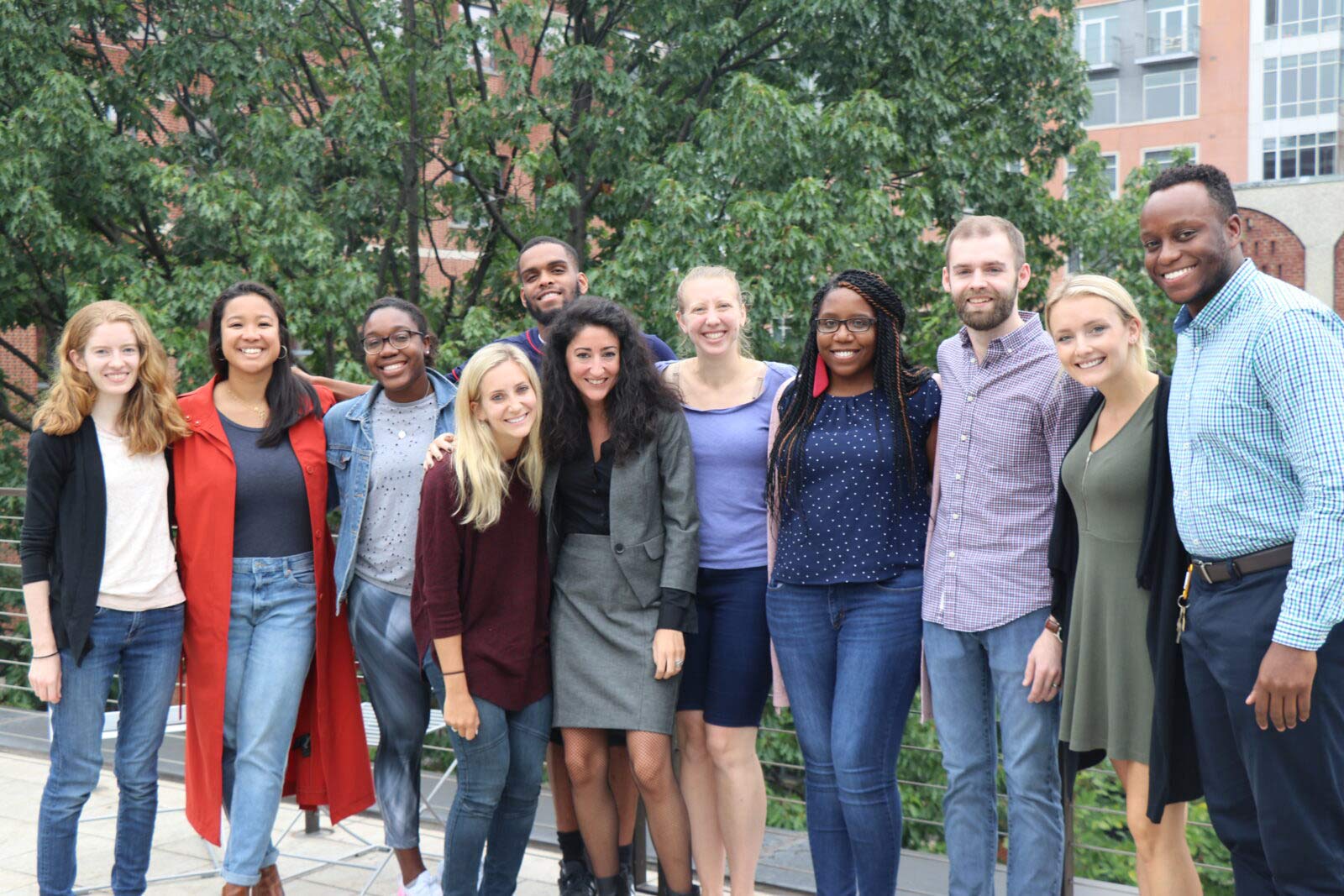News Details
Answering the Call for Social Change: MSSP/JD Degree Sees Significant Enrollment Increase

Authored by: Alina Ladyzhensky
Photography by: Provided
Student Life
11/09/18
Regardless of party affiliations, the current political climate in America can be characterized as a whirlwind – intense and unpredictable. The silver lining, however, comes in the form of our emerging policymakers and social change leaders. Rather than breeding contempt, this time of unrest and uncertainty has galvanized many of the country’s young people, inspiring them to work toward enacting the change they want to see.
This forward-thinking outlook among today’s students is a key element of the considerable, recent growth of the Master of Science in Social Policy (MSSP)/Juris Doctor (JD) program at Penn, offered jointly by Penn Law and the School of Social Policy & Practice (SP2). In just the last two years, the program – one of four dual degrees offered for full-time MSSP students – has seen its enrollment jump from two students to its current cohort of 10.
“In the context of this politically and environmentally uncertain world, students want to answer the urgent call for social commitment,” said Azahara Palomeque, PhD, Associate Director of the MSSP program at SP2. In Palomeque’s view, the program’s increased popularity can be attributed to a confluence of timely factors: the urgency of wanting to enact social change on a local or global level, combined with the extensive applicability of the curriculum in both the private and public sectors. “A law degree, in combination with a degree in social policy, provides students with the ideal training to solve today’s problems while building a career in public service,” Palomeque continued.
By way of example, current MSSP/JD candidate Gabriella Ravida relayed the story of telling her colleagues at a law firm that she is pursuing the dual degree. “They were very excited about this, because there are many opportunities in which this education could be useful,” Ravida said. “For instance, a few partners were working on a criminal justice reform project with area nonprofits, and they really found it useful to have someone who could understand policy and its effects in order to come up with legal solutions to the problems they were tackling. When I shared that I was pursuing a MSSP/JD, they were very excited to hear this, and looking forward to using my skills when I return to the firm.”
Next summer, Ravida aims to epitomize the duality of the program by splitting her internship between working at the law firm part-time and working at a nonprofit such as the Education Law Center. Another student, Amanda LeSavage, echoed Ravida’s enthusiasm in taking full advantage of the skills both programs provide. As a result of pursuing the dual degree, LeSavage says she has become a more persuasive advocate, and has learned how to blend research, economics, statistics, and policy in order to enhance her legal arguments. Through the program, LeSavage had the opportunity to serve as a clerk for the United States Senate.
“As a clerk, I conducted research on issues related to immigration, gun control, healthcare, and criminal justice reform. I also prepared materials for judicial nomination hearings and provided voting recommendations on proposed legislation,” LeSavage said. “The skills and knowledge that I gained at both the law school and the MSSP Program helped me synthesize these complex social problems and provide clear recommendations.”
Through the MSSP/JD dual program, students can earn both degrees in just three years. The curriculum is designed to impart students with legal expertise and policy knowledge that will enable them to advocate, and help develop solutions, for the needs of marginalized and vulnerable groups. Like the program itself, students’ reasons for pursuing the social policy and law disciplines in tandem are both practical and socially-conscious.
“I felt that I had gaps in my knowledge of policy, and sought out this program as a means of rounding out my civic education so that I may be a more responsible citizen. Although analyses of how governments ought to operate are certainly important, they are useless without a pragmatic understanding of how governments actually work,” explained Michael Blake McCracken, another student currently enrolled in the program. “I wanted to learn how to put a normative vision of government into practice, and I believe the MSSP program at Penn will help me towards that goal.”
McCracken plans to become a public-interest attorney, and when he interned with a civil rights nonprofit last summer, he witnessed the importance of understanding social policy in a legal framework firsthand. “Lawyers are often asked to opine on a policy proposal—their office may want to issue a statement on a new piece of legislation, and sometimes policymakers even ask lawyers to help them draft new laws. Moreover, knowing how a particular policy change will impact their clients enhances an attorney’s abilities as an advocate,” he added.
Another student, Leigh Anne Schriever, explicitly sought out dual degree programs after completing her undergraduate studies. She aspires toward a career in government service, and plans to eventually transition from practicing law to writing policy. The dual degree program enabled Schriever to pursue her interest in labor and employment law, and focus specifically on social policy instead of becoming a policy generalist.
“Most recruiters I talk to want to know what the MSSP program entails and why I wanted it,” Schriever said. “I have an easy answer: a joint degree that involves both law and policy precisely mirrors my own career goals, and provides me with the credentials for any job I can imagine wanting.”
Echoing the students’ enthusiasm, Amanda Aronoff, director of Cross-Disciplinary Programs & Academic Options at Penn Law, believes that the effective collaboration between SP2 and Penn Law, combined with the strong cohort of current students, plays a huge role in the dual degree program’s popularity.
Given their comprehensive, interdisciplinary training and civic-minded aspirations, the growing cohort of MSSP/JD students are undoubtedly well-positioned to make a difference in society, wherever their career paths may take them.